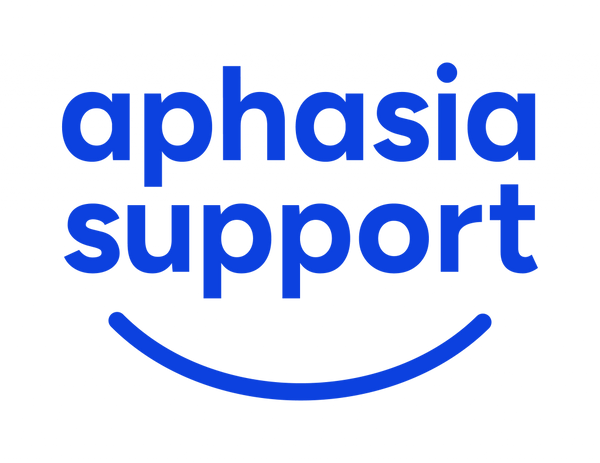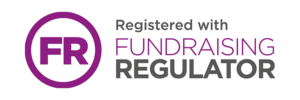Kindness Beyond Words

At Aphasia Support, we’re passionate about creating greater understanding, empathy, and inclusion for everyone affected by aphasia. Hidden disabilities, like aphasia, can often make people feel isolated or misunderstood - but kindness can bridge that gap, and we can all make a conscious effort to connect with patience and compassion.
To mark World Kindness Day, we’re delighted to share this guest article from Zoë Bishop, founder of Blessed Before You’re Dressed (BBYD) and owner of Torchlight Wellbeing. Zoë’s heartfelt reflections prove that that kindness goes beyond words - it's a universal language without barriers, and one that makes the world a better place.
A Guest Article by Zoë Bishop
Kindness can show up in ways that go far beyond words. As the founder of BBYD, I’ve seen how gratitude and compassion can transform even the hardest days. Here’s what I’ve learned…
🚫 Misunderstood and Misjudged: The Hidden Cost of Assumptions
We all make judgments every single day, often based on a simple observation. Sadly, those with hidden disabilities can bear the brunt of this.
Aphasia is a little-known language disorder that affects a person's ability to speak, read, write and communicate with the world around them. It's commonly the result of a devastating stroke, and affects a third of stroke survivors.
I was shocked to hear how people with aphasia are often mistaken for being drunk or unintelligent, simply because they can't express themselves or communicate their thoughts in familiar ways. It's heartbreaking to think that these misplaced assumptions can lead to frustration, lack of confidence and isolation.
So how can we respond to this? Kindness. It’s a language everyone can learn, and it goes beyond just words. It’s how we listen, include, and connect.
💗 Kindness in Action: Everyday Ways to Support Communication
Here’s what I mean:
● Have an open mind. Don’t jump to conclusions based on limited information. We have no idea what kind of day someone is having before they cross our path. Try to bear that in mind when you can.
● Give time and space to speak. We’re often quick to jump in or finish someone’s sentence, which can unintentionally silence them. I’ve been blessed to experience a listening circle where each person is given two minutes to talk uninterrupted. It’s powerful, both as the speaker and the listener. This time can be extended or adapted to support expression when speech is difficult.
● Make eye contact. It’s one of the oldest and most universal forms of nonverbal connection. A warm gaze can say “I’m here with you” without needing speech. It helps people feel seen and included, especially those with speech or language challenges.
● Be fully present. We’ve all been in conversations where the other person is distracted, it makes us feel invisible. Nodding and giving someone your full attention is not only respectful, it shows compassion and interest.
● Smile. A simple smile can brighten someone’s afternoon. It’s a way to communicate warmth and let people know you’re pleased to see them. Smiles are often contagious - the more you give out, the more others will reflect back. I encourage you to give it a try today! Just smile at one stranger and see how it makes you feel.
● Use gestures. A handshake, a hug, a hand heart, a pat on the back, or a wave to thank a driver, these nonverbal gestures can make a real difference, especially for someone with a communication disorder.
● Write it down. If you're able to, you can express kindness in written form too. A post-it note in a lunchbox, a thank-you card, a letter, or even a message on a fridge or chalkboard. At home, I have a chalkboard in the kitchen that says “Welcome to Bishop Towers,” and underneath I write the name of whoever’s coming over. It’s a small act that makes people feel seen.
Actions often speak louder than words. Imagine if we all got just 1% better at each of these things…
🌱 Gratitude as a Gentle Practice for Connection
For me, kindness and gratitude go hand in hand.
Having practised daily gratitude for the past few years, I’ve found that this powerful reframing has transformed my life. Whilst it's important to take the time to acknowledge the weight of what you're going through, it's also helpful to focus on what you do have and what you can appreciate, even when it’s hard. A warm pair of slippers, care from a loved one, your favourite mug, your dog. The more you start counting your blessings, the more blessings there are to count. Gratitude is an amazing multiplier.
Here are a few gentle ways to bring it into your day:
● Try a shared gratitude moment - write one thing you’re thankful for as a group or in a pair.
● Use a gratitude jar or notebook to reframe frustration. If speech is difficult but you’re still able to write, celebrate that and pop it into your jar or notebook of thanks. (Any spare stationery will do, or treat yourself to something new!)
● If your speech is slowly improving thanks to therapy, be proud of your progress, no matter how small. You can also revisit these moments for a boost.
● Send a thank-you message to someone who’s made a difference. Whether you write it yourself or get support to scribe, the sentiment will be deeply appreciated.
When we intentionally bring more gratitude into our world, our brains become flooded with dopamine and serotonin, making us feel happier.
🌍 A Kinder World Starts with Us
Kindness is a language with no barriers. I hope that message has come across loud and clear in this article. You can make a difference just by being more patient, present, and inclusive in everyday actions.
Take a moment to reflect now on your own gratitude. For me, I’m grateful to have been given the opportunity to write this article and help raise awareness of such an important cause.
Zoë Bishop
Founder of Blessed Before You’re Dressed (BBYD) and Owner of Torchlight Wellbeing
Feel free to share this piece, explore the gratitude resources on my website, or contact me directly to share your feedback.


